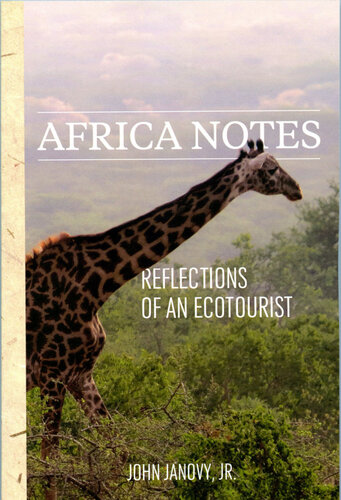

Most ebook files are in PDF format, so you can easily read them using various software such as Foxit Reader or directly on the Google Chrome browser.
Some ebook files are released by publishers in other formats such as .awz, .mobi, .epub, .fb2, etc. You may need to install specific software to read these formats on mobile/PC, such as Calibre.
Please read the tutorial at this link: https://ebookbell.com/faq
We offer FREE conversion to the popular formats you request; however, this may take some time. Therefore, right after payment, please email us, and we will try to provide the service as quickly as possible.
For some exceptional file formats or broken links (if any), please refrain from opening any disputes. Instead, email us first, and we will try to assist within a maximum of 6 hours.
EbookBell Team

4.7
76 reviewsAfrica Notes addresses the following question: How are exceptional travel experiences, especially ones taken to realize life-long dreams, not only integrated into your memories, but also informed by your past experiences, your knowledge, and your values? In this sense, the book's theme is transferable to other aspects of human lives as well as to experiences that are not necessarily chosen but nevertheless have a major impact on our personal futures. There is plenty of biology in Africa Notes, but that biology is quite different from what you would find in the rest of the tourism or African natural history literature; this difference is enough to qualify Africa Notes as literary non-fiction. Chapter subjects range from the author's wife's first encounter with a lion, to the view of elephant-wrecked trees as sculptures, to the back-home behavior that can be attributed directly to precious time spent in sub-Saharan Africa.
The author brings to these ecotourism adventures the background, interests, and observational skills acquired during a career as a professional biologist, writer, and artist. Thus Africa Notes is a sort of travel writing, but heavily laced with a kind of natural history not really found in the travel literature. Field observations for Africa Notes were derived from two safaris, one to the Okavango Delta in Botswana and one to the Serengeti in Tanzania. In that sense, the thousands of digital images and pages of notes are not much different from those brought home by the other thirty million tourists who visit the continent annually. A significant fraction of those images, however, were taken from the perspective of a professional biologist planning his non-scientific writing, a good example being hundreds of photographs of elephant-sculpted trees, taken from distances of a few yards to a few centimeters. While in Africa, the author was constantly thinking about what a person with his background could, and should, be saying to the rest of the world through his writing. This kind of thinking has shaped the narrative; the author's goal to let a reader see the experience in a unique way.